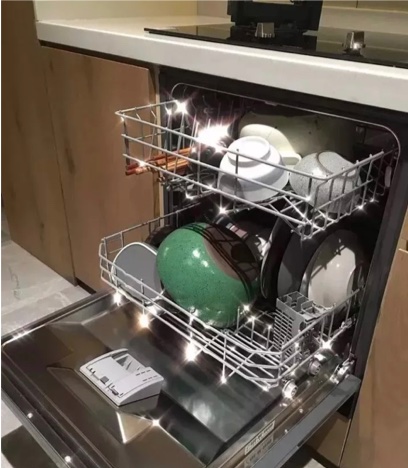If you spent any part of last year in a less-than-sunny mood, nobody would blame you: Suddenly, people were tasked with navigating a whole new way of life, with little information or reprieve. And you likely don’t need to be reminded of the ways in which you juggled Zoom calls, deadlines, remote-learning, and everyday household chores like making dinner or switching out the laundry before it mildews—you’re probably still trying to find a balance amidst the chaos!
But now it’s 2021 (seriously, how?!) and you want to face each day with optimism. Take a cue from writer and life coach Doug Marshall , who finds strength in a set of five words to help in when times were tough.
The phrase? “I’m okay in this moment.”
As Marshall tells Apartment Therapy , the phrase was part of a lifestyle overhaul at a time when he hit an “emotional bottom.”
“In 2010 I was living an unmanageable life in New York filled with anxiety and a litany of mental health issues… at the time a therapist and prescription weren’t enough,” he says. “I needed something that would work on my mental health wellness in any moment. I was desperate enough to try meditation, breathing, and saying affirmations like ‘I’m OK in this moment’ after a friend suggested it.”
Marshall notes that he “started to feel good,” and that he was “naturally more positive and my energy got brighter.” And when he started to feel better, he tried to keep the momentum going. “It’s not a cure-all,” he says of mantras like this, “but it makes you feel better and when you feel better, you see more possibilities.”
In a 2015 study, researchers found that self-affirmation lights up the same parts of the brain that respond to “pleasurable” experiences. “Affirmation takes advantage of our reward circuits, which can be quite powerful,” the lead researcher on the study said at the time. “Many studies have shown that these circuits can do things like dampen pain and help us maintain balance in the face of threats.”

The snowball effect of a good mood
For Marshall, the shift in his thinking helped him become more mindful, which he defines “in terms of my personal energy,” he says. “When my energy is good and I’m feeling good, I’m aware of my surroundings and I feel connected to the world. My energy informs my mindset so I work on my energy. Basically, I practice mindfulness tools like meditation, affirmations, movement and breath work in order to clean up my energy on a daily basis so I can feel good and live a more productive life.”
If that sounds like something you’re after this year, Marshall recommends dancing around your room for a few minutes, or trying to meditate for just a few minutes. (He warns not to overdo it and shoot for a 20-minute meditation session if you’re new to the practice—the point is to find a practice you can stick to in the long haul.) “Even if life totally sucks, if you meditate or be conscious of your breath for five minutes, you could shift your energy and you begin to feel more empowered and you might see possibility rather than lack,” he says.
It’s okay to acknowledge a bad mood (for a few minutes)
Bad things—and bad moods—happen. The trick to avoid blowing up in the long haul? Honoring that feeling in the moment, before committing yourself to doing something about it.
“You know those people who are like, ‘I never get mad’?” Marshall asks. “They just don’t allow themselves the luxury of letting it out. Hopefully you won’t be near them when they snap one day.” Venting, he adds, helps you “let the steam out” before you pivot toward finding a productive solution, but it’s worth keeping your complaining to a few minutes maximum. “Let it out, but then be willing to change it.”
Resolution: Start each day with an affirmation
Motivational phrases are by no means one-size-fits-all—a statement that served you last week might not do anything for you today, and that’s OK. Just as importantly, the phrase doesn’t need to be complicated or deep, especially when you’re getting into the swing of a new habit.
“Set intentions for the day and keep it super simple,” Marshall advises. “Just say, things like, ‘I want to have a good day. I will take care of my energy today. I will find ways to feel good. I will be kind to people today. I will show up to my job with an open mind. I will be loving and kind to myself today.’ Even saying a few sentences like that in the morning raises your energy and primes your day.”
And that, he adds, can have a major impact in both your life and your year. “I believe mindfulness is really about being aware of your energy and knowing how to care for it,” he says. “When you change your energy, you can change the world.”
Additional reporting by Kara Nesvig












